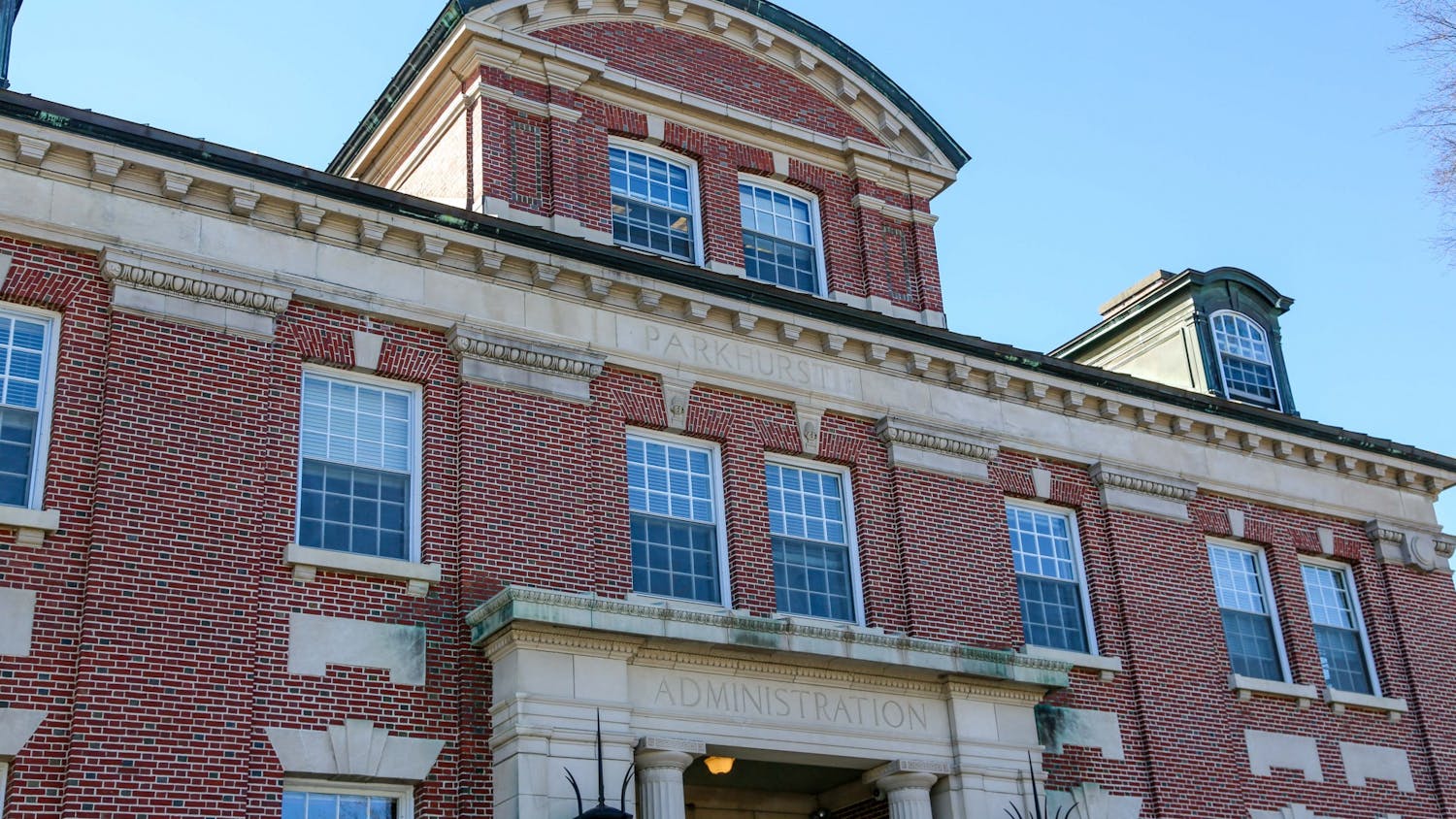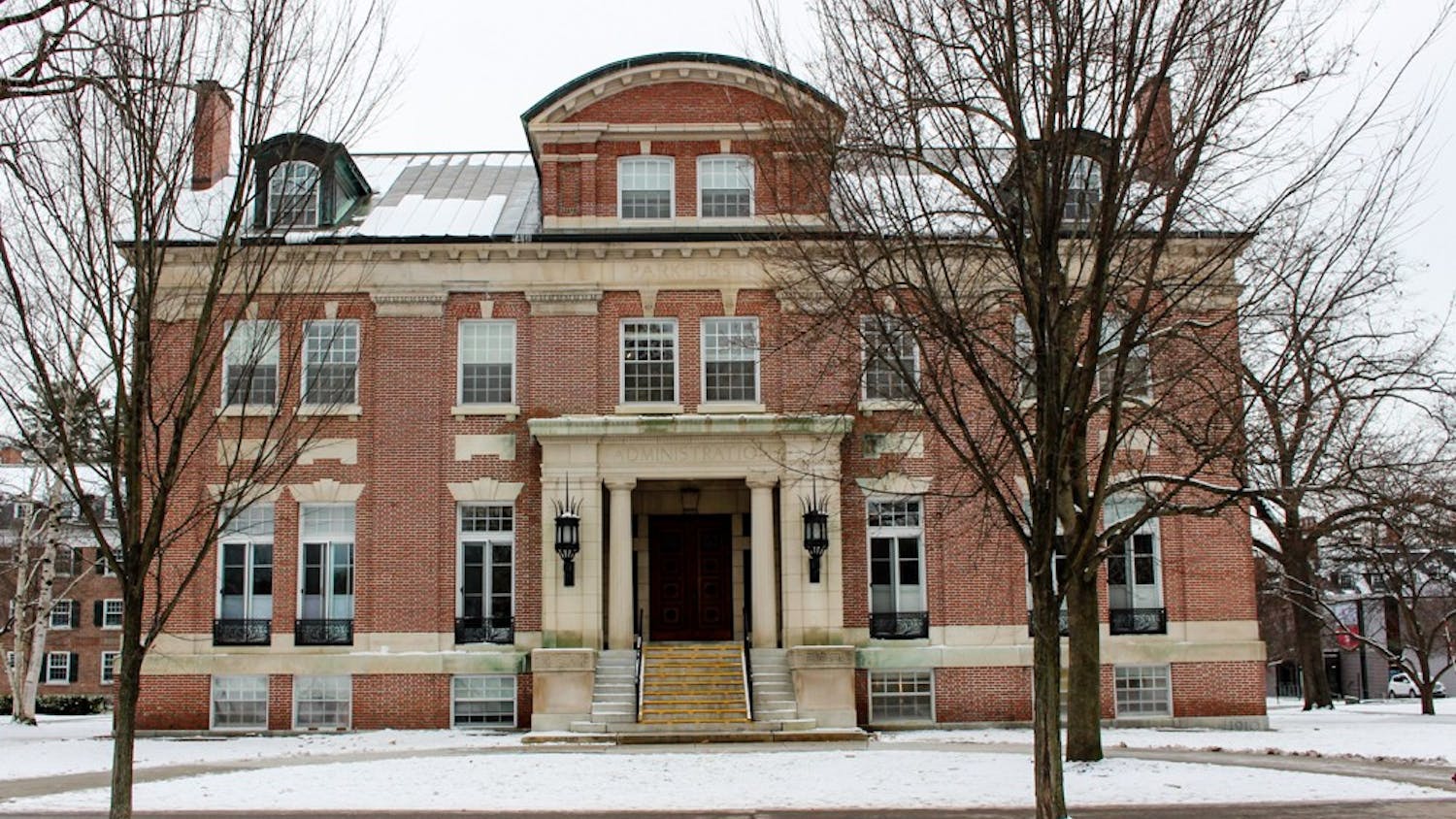The past few weeks haven’t been easy for anyone. In that short span, the novel coronavirus COVID-19 went from a far-away news story to a dominating fact of life for members of the Dartmouth community. Spring term is greatly curtailed, with all classes to be conducted online. Campus life is severely diminished. Among other restrictions, all Dartmouth-sponsored travel is banned, students are effectively forbidden from returning to campus and emails arrive daily bearing stricter and stricter regulations.
At the outset, we want to acknowledge the members of the COVID-19 task force and everyone who has devoted their time and effort to mitigating this outbreak. While we criticize two of the administration’s decisions, we want to preface that criticism with an acknowledgement of the effort that many at Dartmouth have made to address the coronavirus outbreak. Dealing with this epidemic is a project for everyone at Dartmouth. And as members of the Dartmouth community, we feel obliged to speak up against aspects of Dartmouth’s COVID-19 response that directly harm students.
Our first and dominant concern is tuition. Dartmouth intends to charge full tuition for spring term. During the virtual town hall held on March 18, College President Phil Hanlon stated that “tuition has never covered the full cost of the student learning experience … it basically covers the cost of paying the faculty and the staff … that will again be the case this spring.” While we strongly support the continuation of faculty and staff pay, the notion that students must provide that money seems hard to believe — with an endowment over $5.7 billion, Dartmouth’s assertion that full tuition is necessary to bide faculty and staff through spring term is questionable at best.
The simple reality is that a virtual spring term is not the equivalent of a normal Dartmouth education. Recorded lectures and video calls bear little resemblance to the usual dynamism of Dartmouth classrooms. And besides, most of Dartmouth’s other resources will be unavailable during the spring. That means no health center, no gym, no counseling, no guest speakers, no extracurricular activities — the list goes on. More than anything though, what students lose from an online term is the academic community that makes a Dartmouth education so valuable.
We recognize the unfortunate public health realities that forced Dartmouth to move online, and we support that difficult decision. However, to charge full tuition for an online term is blatantly unfair. Students have little bargaining room, given the sunk costs already invested into a Dartmouth education and degree. Though the administration has opened up online transfer options for the spring, guidance on what that means has remained slim, and many students are left confused about their options.
An additional flaw with charging full tuition relates to work-study and on-campus jobs. Many Dartmouth students rely on work-study jobs to finance their education. By and large, these jobs won’t be available during spring term. Unless something changes, students on work-study will have no choice but to cover the difference. It is unfair to force students who rely on work-study to suddenly pay out of pocket, especially in a time as difficult as this.
Dartmouth should do the fair thing and reduce tuition to account for the reduced quality of spring term. Over 2,500 people have already signed an online petition calling for reduced spring-term tuition at Dartmouth. That number doesn’t include students who refused to sign out of concern for Dartmouth employees. Thankfully, however, the College has already promised to pay its employees in full for the duration of spring term. It should treat its students with similar respect and reduce tuition.
A second widely-held student concern left unaddressed by the College is the administration’s decision to forbid all access to dorm rooms. Such a policy might have been reasonable had the College given students any warning that spring term might take place entirely online.
It took until March 11 — five days after the end of classes, and well after many students had left campus — for the College to so much as bury the suggestion that students “take what you can with you” amid the text of a long, opaque email.
Given the College’s previous lack of clarity regarding its plans for spring term, Wednesday’s sudden announcement that students “MAY NOT come to collect your things right now,” with no alternative given for retrieval, is fundamentally unfair to students.
The College’s sudden decision to prevent students from accessing their belongings gives little concern to the already tenuous financial situation in which the coronavirus outbreak has left many students. Most students don’t have the luxury of repurchasing nearly all their essential belongings. If the College refuses to let students clean out their own dorm rooms, it must either offer to compensate students or quickly ship students’ personal items home.
For some students, that move-out is already a reality. The College set aside the Maxwell and Channing Cox apartments as self-quarantine housing in the event that COVID-19 infects members of the Dartmouth community. In an email to residents of those apartments, the College informed them that it would send in movers to clear out their rooms and place items in storage. Students had no choice in the matter, making the forced move-out an unacceptable invasion of privacy. Furthermore, the College did nothing to actually return students’ possessions. Students remain deprived of their property under the College’s current model, which creates a financial burden for many students.
Returning possessions is especially important given the recent economic downturn, which disproportionately impacts blue-collar and service workers who can’t call into work from home. With money already tight, many students can’t afford to have the College hold onto their things indefinitely. Students have a right to their own possessions, and it’s on the College to either give those possessions back or allow students to retrieve them.
We urge the College to offer voluntary and free move-out services to all students. That way, students aren’t forced to surrender their right to privacy, and students who badly need their possessions can avoid serious financial difficulty.
Additionally, we strongly encourage the College to prohibit any disciplinary action as a result of room move-outs. If the College plans to punish students for violations found while moving out, those move-outs will function as de facto warrantless searches. Forcing students to choose between potential disciplinary action and financial instability creates an atmosphere of fear and uncertainty. The administration has yet to clarify its policy with regard to this issue, but it has an obligation to do so. In the name of fairness, Dartmouth should quickly give students the option to have their possessions returned and promise not to penalize students for any violations found during move-out.
In voicing these two criticisms, we do not mean to criticize the College’s overall response to COVID-19. Though difficult to accept, many of the sweeping measures implemented on campus are harsh necessities in the midst of a pandemic. We applaud the COVID-19 task force and others in the administration for taking the time and effort to inform the Dartmouth community about their deliberations.
But on a few issues of critical importance to students, Dartmouth hasn’t given clear or fair answers. We urge the College to charge fair tuition for what we all know is a lesser product. And we ask the College to return students’ property. These are not unreasonable requests. As members of the Dartmouth community, every one of us is impacted by the events of the past few weeks. Let’s stand by each other and do what’s right.
The editorial board consists of the opinion editors, the executive editors and the editor-in-chief.



